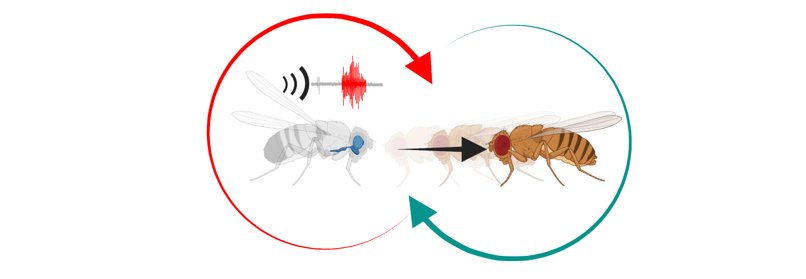
Computational Neuroethology of Social Flexibility
Life in a social world requires flexibility at several timescales: at fast timescales, social partners rapidly integrate information about each other to initiate adequate behavioral responses, while at slow timescales, individuals update behavioral strategies through learning from past social experience (feedback). Impairments in the ability to adjust to social feedback can strongly reduce the quality of life. Despite its relevance, the flexibility of social behavior is not yet understood at the level of neural circuits. Our research aims at revealing the key principles underlying the flexibility and neural control of social behavior, using courtship behavior of the vinegar fly, Drosophila, as a model system. This will allow us to combine the wealth of available opto- and neurogenetic tools, high-resolution experiments with freely behaving animals, and neural circuit modeling to gain mechanistic insights.